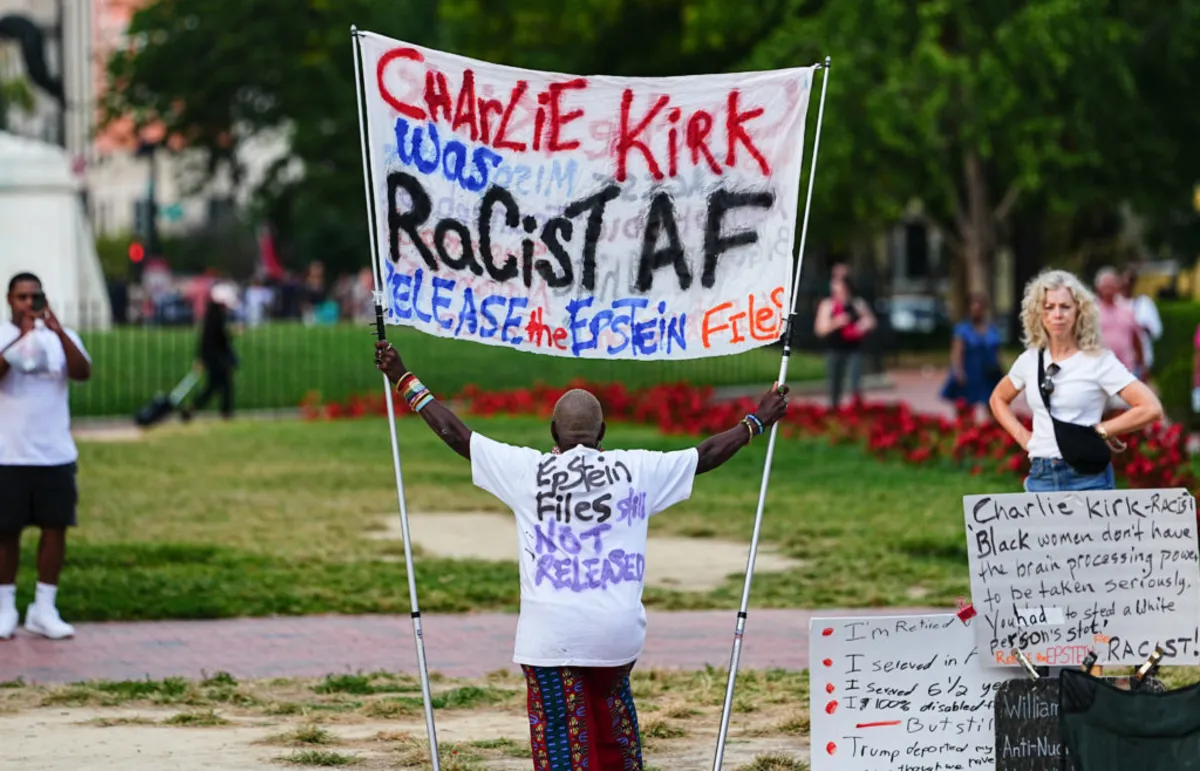
BASKING RIDGE, New Jersey (AP) — In the wake of Charlie Kirk's tragic death, a growing number of conservatives are mobilizing against individuals and organizations they believe have disparaged him or celebrated his assassination. This response marks a significant shift in the ongoing debate about cancel culture, which conservatives have long criticized as being a tactic of the left. The backlash has led to the swift dismissal or punishment of several educators, employees, and pundits deemed to have promoted hate speech in the aftermath of Kirk's death.
Just days after the incident, a campaign spearheaded by public officials and conservative advocates has resulted in various dismissals. This includes teachers, an Office Depot employee, and government workers, with expectations of further actions to follow. Transportation Secretary Sean Duffy took to social media, claiming that American Airlines had grounded pilots celebrating Kirk's assassination, labeling their actions as “disgusting” and calling for their termination.
As prominent conservatives honor Kirk as a champion of free speech and a provocateur in political discourse, they are also employing tactics reminiscent of those they have opposed. The calls for firings and public ostracism raise deep questions about the nation’s ability to tolerate political dissent in an increasingly polarized environment.
The political climate surrounding Kirk's death has sparked fierce debates about the boundaries of free speech. Republicans are advocating not just for justice against the alleged assassin but also targeting those whose statements they believe contributed to a culture of violence or disrespect towards Kirk's legacy. The reactions are not limited to conservatives; some liberals have faced backlash for expressing sympathy over Kirk’s death, indicating a complex and often contentious political landscape.
Adam Goldstein from the Foundation for Individual Rights and Expression remarked on the dangers of this escalating trend, noting that the urge to “persecute” individuals for their private opinions has roots that trace back to significant national tragedies. He emphasized that true support for the First Amendment is tested during unpopular speech, highlighting that there are no efforts to censor benign or universally accepted views.
Utah Governor Spencer Cox has urged caution, emphasizing that the motives behind the assassination have yet to be fully confirmed. While the suspect reportedly aligns with leftist ideology and had previously expressed disdain for Kirk, officials have noted that he was not politically active. Kirk, known for his role in bolstering President Donald Trump’s outreach to younger voters, has become a martyr figure for many conservatives who view liberal commentary as inciting violence.
Senator Lindsey Graham, R-S.C., articulated this viewpoint on NBC, asserting that Kirk's killing represents a broader assault on conservative values and political movements. He compared it to previous assassination attempts against Trump, framing it as a significant threat to a movement he believes is under siege.
In a notable escalation, Senator Marsha Blackburn, R-Tenn., has publicly demanded the dismissal of faculty members from various universities for their perceived insensitivity towards Kirk's death. Comments that lacked sympathy or even expressed pleasure regarding the incident have led to significant professional repercussions for those involved.
In the sports world, several NFL teams opted to hold a moment of silence for Kirk, a gesture often reserved for significant tragedies such as school shootings or other national crises, underscoring the impact of his death on the broader cultural landscape.
In the context of Kirk's assassination, social media has come under scrutiny for its role in amplifying divisive rhetoric. Governor Cox, during an appearance on NBC’s “Meet the Press,” highlighted the detrimental effects of social media on public discourse, pointing out how it can provoke outrage and exacerbate societal divisions. He remarked that major tech companies have effectively learned to manipulate public emotions, often leading to harmful outcomes.
Despite the focus on social media's influence, many Republican lawmakers have directed criticism towards traditional news outlets for fostering a hostile political environment through their reporting. Senator Katie Britt, R-Ala., specifically called out media entities for hosting guests who have made inflammatory comparisons between Trump and historical figures like Adolf Hitler, asserting that such rhetoric contributes to a climate of violence.
As the political fallout from Charlie Kirk’s death continues to unfold, it raises critical questions about the nature of free speech, accountability, and the societal role of public figures. The ongoing struggle over narratives and expressions of sympathy or condemnation highlights the deepening divides within American society. The conversation surrounding these issues will undoubtedly evolve as both sides of the political spectrum grapple with the implications of free speech in a time of heightened tensions.